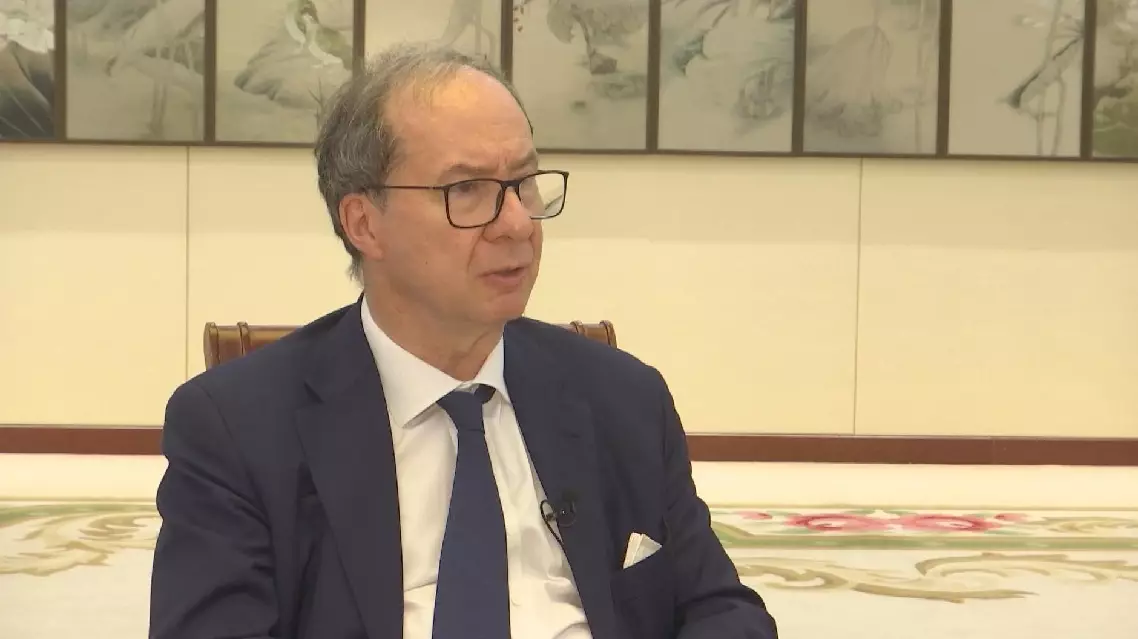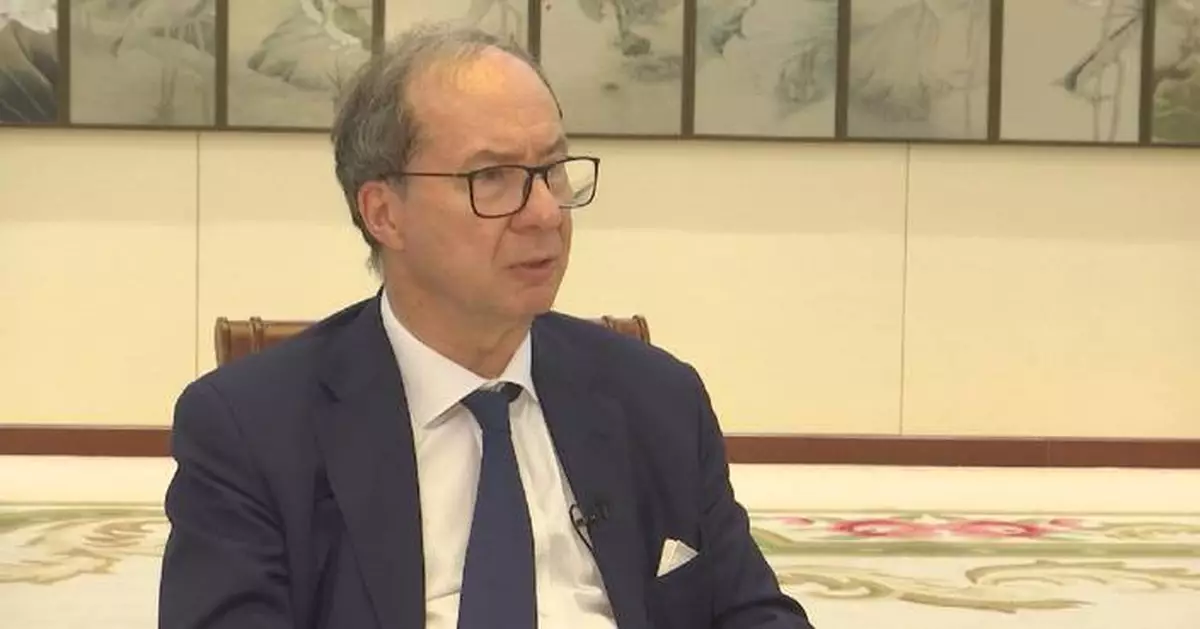European businesses are lamenting the United States' abuse of tariffs and may ultimately pursue greater trade cooperation with China as a result, Bernard Dewit, chairman of the Belgian-Chinese Chamber of Commerce, said Thursday.
The China Council for the Promotion of International Trade (CCPIT) held talks with the Chamber on Thursday in Beijing, discussing recent trade tensions and China-Belgium economic relations.
In an exclusive interview with China Central Television (CCTV) on the sidelines of the talks, Dewit stressed that the trade barriers set by the United States will diminish the international trade that has steadily developed for decades.
"I would say personally, I'm sad. I'm sad because we see that by raising tariffs everywhere, it will not help international trade. And therefore, it will not help the economic situation in the countries. What we saw the last 30 years was a growing international trade, and in general the level of living in the various countries in the world went up, especially in China. But not only in China, we saw it in Europe, and in various countries. So what we are a bit afraid of is that by continuing to raise tariffs, to raise barriers. That will bring some more protectionist measures in other countries, and we will see the international trade would diminish. By diminishing, that means also less opportunities for each other companies to discover new markets and to go to further growth," he said.
Dewit noted that Europeans are already looking for more reliable trading partners, with China as a primary country of interest.
"Trade barriers are coming up, of course, in the U.S. China is reacting, Europe is considering taking also measures. We find in the business circles, in Europe and in Belgium particular, this is a pity, this is not good, we think, because putting trade barriers will not help improve the situation, I think, of our economies," he said.
"China is the second economy in the world, you cannot ignore China just (like) that. When President Trump is saying we have to re-industrialize our country, but that cannot be done in 24 hours, it takes a lot of time. And in the mean time, we need production in China. We would like to have more exports from Europe to China, there is room for this. We see also that, concerning the export of China to Europe, Europe is also profiting from it, because thanks to that, products have good quality, good price for the consumers, which is limiting the inflation," he said.
Earlier this month, Trump signed an executive order to implement so-called "reciprocal tariffs" which imposed a 10-percent "minimum baseline tariff" on all imports, before announcing higher rates on certain trading partners. After days of chaos on the global markets, Trump then moved to suspend these higher rates for 90 days on all countries except China.
The White House issued a Fact Sheet about Section 232 investigation on its website on April 15, saying that China faces up to a 245 percent tariff on imports to the United States as a result of its retaliatory actions.

Europe expects deeper ties with China as US erects trade barriers: Belgian trade advocate




















































